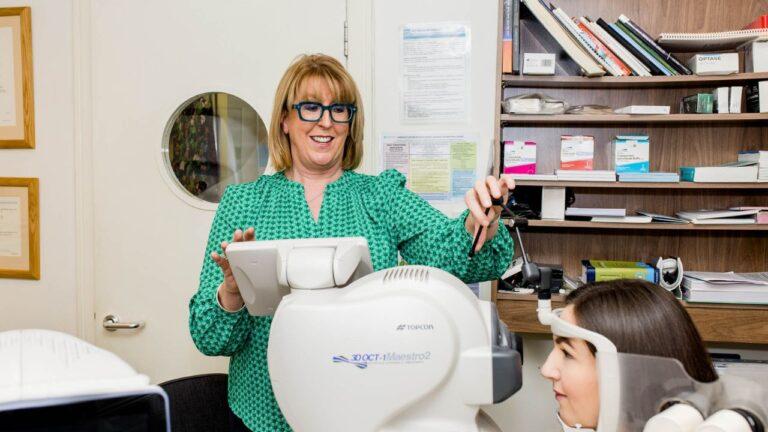As winter approaches it can feel like it’s almost always dark. The shorter days mean that we are likely to spend more time driving in night-time conditions than usual.
For many people, driving in the dark can be challenging. Especially as we get older, our eyesight begins to deteriorate, our ability to see at a distance isn’t as good and it can take longer for older eyes to adjust from bright to dim light.
Driving in the dark is essential for day-to-day living, particularly for those that don’t live near good public transport links. Here’s some practical advice from Eavan, EK Eyewear optometrist and owner, on how to stay safe when driving in night-time conditions.
Tips To Stay Safe When Driving In The Dark
Follow our top tips to keep safe while driving in the night:
- Visit an optometrist – book an eye test with us at least every two years, or more often if your optometrist recommends it. As we age, we have greater difficulty seeing at night and some older drivers’ vision is compromised by cataracts, dry eyes and degenerative eye diseases. We can provide personalized advice and address specific concerns related to night-time driving.
- Use the Right prescription – If you require corrective lenses, make sure your prescription is up-to-date and appropriate for night time driving. Wearing the wrong prescription glasses can make it harder to see when driving at night.
- Keep it clean – Adopt a Mrs Hinch sensibility for your car. Clean your windows inside and outside as a dirty windshield can cause glare and reduce visibility. Check the dirt and grime build up on your headlights too as their brightness and range can be reduced.
- Look away – Looking at oncoming headlights can leave you dazzled for up to five seconds so don’t look directly into the headlights of oncoming traffic. If this happens, slow down and if possible, stop driving until these effects have worn off.
- Dim the dashboard – A bright dashboard will hinder your vision, so use the dimmer switch, if you have one.
- Don’t be a drowsy driver – Drowsy driving is a serious problem resulting in many thousands of road accidents each year. According to RoSPA1, research shows that driver fatigue may be a contributory factor in up to 20% of road accidents. So, ensure you are rested and try to avoid driving between midnight and 6am.
- Slow down – Reduce your speed and increase your following distance behind the car in front of you.
Warning Signs That You Have Problems Driving In The Dark
If you are worried about any of these characteristics when driving at night, give us a call or book an appointment and we can talk through your concerns and give you the best advice:
- Increased sensitivity to glare from oncoming headlights
- Difficulty seeing road markings and street signs
- Needing to drive slowly
- Difficulty with judging distance and speed
Not all of these signs will mean you have to stop driving at night. You may wish to think about lenses that are specifically designed for drivers, like our Zeiss DriveSafe Lenses.
These lenses enhance the wearer’s vision during the day and whilst driving at night. Thanks to the DuraVision DriveSafe Coating, the lenses can:
- Enhance vision in low-light conditions
- Reduce perceived glare and reflections from oncoming traffic
- Offer a wide field of view for changing focus between the road, screen displays and rear-view mirror
Headlight dazzle: a glaring problem
Oncoming headlights, especially vehicles fitted with LED bulbs, can cause headlight dazzle. To reduce the effects of glare from oncoming headlights:
- Adjust your mirrors: Tilt your rear-view mirror slightly to redirect the incoming light away from your eyes.
- Look to the right: Focus on the right side of the road when faced with oncoming headlights. This can help minimise the impact of glare on your vision.
- Dim interior lights: Reduce the brightness of your dashboard and interior lights to prevent additional glare within the vehicle.
Looking after your eyes is very important to keep you safe when driving at night. By recognising warning signs, following our safety tips, and addressing specific vision issues, you can improve your ability to drive safely at night.
Don’t forget to book regular eye tests with us to keep your eyes in tip top condition for driving this winter. Safe travels!










